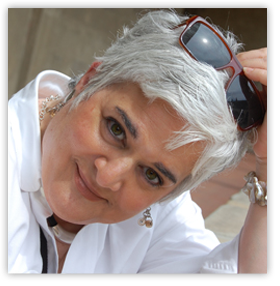These are the words Joseph spoke to his brothers; words of identification, love and reconciliation. In four Hebrew words (Gen. 45:12), Joseph has bridged an insuperable chasm between his brothers and himself. And in speaking as he did, he closed a chapter about lives marked by separation.
There are chasms that mark our lives, keeping us from understanding one another or finding common ground. And on an even larger scale, there are divides that separate us from communities of people. We are separated by language, beliefs, nationalities and religion. The gulf widens and we are unrecognizable to ourselves and to others.
I remember when I was in Belfast meeting with Protestants from the Shankill. As a child, I had grown up in a community of faith that was rooted in Catholicism, and because of the Irish ancestry of most congregants, I was schooled in the politics of “the Troubles,” (conflict between Catholic and Protestant). When my parents placed the envelope, bulging with one dollar bills, into the offering plate, we knew and approved of the fact that most of that money would go to the IRA. Sitting in a room of Protestant women, who shared their pain–the loss of husbands, of brothers, of children to the bombs of the IRA and the fierceness of their own “side,” I was shocked. I spoke up claiming, “I cannot hear this.” And when questioned as to “why,” I replied that I held the IRA in high esteem, in purity that is reserved for the tzadik. My host replied, “You are feeling exactly like us, when we heard the Catholic women speak.” It was at that moment that my mouth opened saying, “Peace can only come if I open my ears and my heart to your truth, to your words.”
This past summer, I remembered that experience as I watched missiles lobbed into Eretz Yisroel and bombs that landed in Gaza. I witnessed the marches here in Ireland and across Western Europe. And I read the postings on Facebook. No one was listening, no one was willing to hear, to understand the truth of the Other. We positioned ourselves along fault lines. And yet, Martin Buber once said that there can be no peace unless we incorporate the story of our “enemy” into our own. The person across the border or the table should open her “mouth speaking to you,” and if we hear the pain that has marked their lives it does not diminish our own; it is merely their pain, their truth. It is time to do as Joseph did. To speak our truth to identify who we are, but also to open hearts and minds to the truth of others so that we will not only be a peaceful people but a people who believe in justice.
Rabbi Gavriel McDaniel-Miccio is a New Yorker, feminist scholar, attorney, poet, and Professor of Law currently living in Ireland and teaching at Trinity College, Dublin. Raised Roman Catholic in a loving Italian family, she converted to Judaism, became an ordained Rabbi…and found her birth family who were, as she believed and felt all along, Sephardic (and Irish) Jews.

